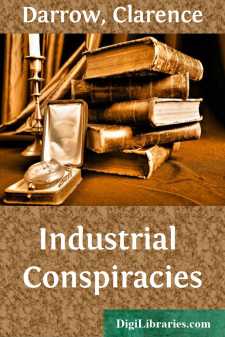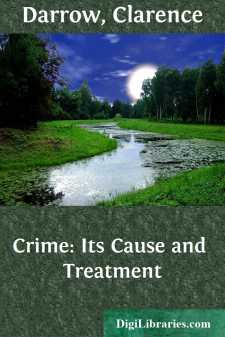Categories
- Antiques & Collectibles 13
- Architecture 36
- Art 48
- Bibles 22
- Biography & Autobiography 813
- Body, Mind & Spirit 142
- Business & Economics 28
- Children's Books 16
- Children's Fiction 13
- Computers 4
- Cooking 94
- Crafts & Hobbies 4
- Drama 346
- Education 46
- Family & Relationships 57
- Fiction 11829
- Games 19
- Gardening 17
- Health & Fitness 34
- History 1377
- House & Home 1
- Humor 147
- Juvenile Fiction 1873
- Juvenile Nonfiction 202
- Language Arts & Disciplines 88
- Law 16
- Literary Collections 686
- Literary Criticism 179
- Mathematics 13
- Medical 41
- Music 40
- Nature 179
- Non-Classifiable 1768
- Performing Arts 7
- Periodicals 1453
- Philosophy 64
- Photography 2
- Poetry 896
- Political Science 203
- Psychology 42
- Reference 154
- Religion 513
- Science 126
- Self-Help 84
- Social Science 81
- Sports & Recreation 34
- Study Aids 3
- Technology & Engineering 59
- Transportation 23
- Travel 463
- True Crime 29
Clarence Darrow
Clarence Darrow was a prominent American lawyer and writer known for his defense of civil liberties and controversial cases in the early 20th century. He gained national fame for defending John T. Scopes in the 1925 "Scopes Monkey Trial," which debated the teaching of evolution in schools. Darrow also wrote several books, including "Resist Not Evil," which criticized the death penalty and the concept of punishment. His legal career and writings made him a key figure in debates about justice, morality, and the role of the law in society.
Author's Books:
Sort by:
by:
Clarence Darrow
Mr. Darrow said: I feel very grateful to you for the warmth and earnestness of your reception. It makes me feel sure that I am amongst friends. If I had to be tried again, I would not mind taking a change of venue to Portland (applause); although I think I can get along where I am without much difficulty. The subject for tonight's talk was not chosen by me but was chosen for me. I don't know...
more...
by:
Clarence Darrow
I There can be no sane discussion of "crime" and "criminals" without an investigation of the meaning of the words. A large majority of men, even among the educated, speak of a "criminal" as if the word had a clearly defined meaning and as if men were divided by a plain and distinct line into the criminal and the virtuous. As a matter of fact, there is no such division, and...
more...



